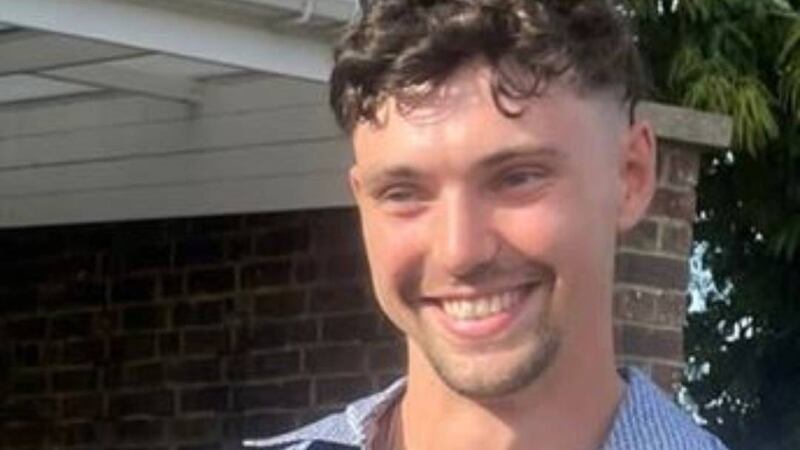CHIEF Constable Matt Baggott was forced to apologise last night after the prosecution of Hyde Park bombing suspect John Downey collapsed due to a "monumental" blunder by his force. Former IRA prisoner Mr Downey (62) received a "letter of assurance" from police in 2007 telling him that he was not at risk of prosecution when there was an outstanding warrant against him.
Despite regularly travelling to Northern ireland and Britain from his Co Donegal home since then, last May he was arrested at Gatwick Airport en route to Greece and charged. He "strenuously" denied the murder of four British soldiers in July 1982 and causing an explosion.
Mr Justice Sweeney threw the case out after Mr Downey's lawyer successfully argued at the 11th hour that he should not go on trial at the Old Bailey.
Yesterday the prosecution announced that it would not appeal against the decision.
At an earlier hearing, henry Blax-land QC warned of the political ramifications in Northern ireland of pursuing a trial against Mr Downey in such circumstances, saying the false assurance he received was "not just negligent, it was downright reckless".
Mr Justice Sweeney said there were "very particular circumstances" of the case.
The public interest in prosecution was "very significantly outweighed" by the public interest in ensuring that "executive misconduct does not disrepute", and in "holding officials of the state to promises they have made in the full understanding of what is involved in the bargain".
The court heard the PSNI knew about the UK arrest warrant for Mr Downey but did nothing to correct the error of 2007.
Afterwards, relatives of the four soldiers said in a statement: "it is with great sadness and bitter disappointment that we have received the full and detailed judgment and that a trial will now not take place.
"This news has left us all feeling devastatingly let down, even more so when the monumental blunder behind this judgment lies at the feet of the Police Service of Northern Ireland."
Apologising to the families Mr Baggott said: "i deeply regret these failings, which should not have happened." He also said checks were under way on information processed by the force about other similar cases.
Secretary of state Theresa Villiers said the PSNI should reflect on "the serious error".
President of the Association of Chief Police Officers Sir Hugh Orde, who was chief constable at the time of the error, said it was a "matter of great personal regret that a crucial oversight was made" which resulted in "erroneous information being sent to Mr Downey by the Northern Ireland Office and thus prejudicing the current indictment".
On July 20 1982, a car bomb left in South Carriage Drive killed the four soldiers as they rode through Hyde Park in central London to the changing of the guard.
The explosion killed Roy Bright, Anthony Daly, Simon Tipper and Jeffrey Young and injured other members of the Royal household Cavalry. Seven horses were also killed as the soldiers travelled from their barracks to Buckingham Palace.
The investigation into the bombing led police to Mr Downey, through fingerprints on parking tickets and a description given by witnesses of two men carrying out reconnaissance before the attack.
An arrest warrant was issued, but it was decided not to seek Mr Downey's extradition from the Republic in 1989, in part due to the lack of strong evidence against him, the court was told.
In 2007 Mr Downey received assurance he was not at risk of prosecution as part of a scheme run by the PSNI. He was one of 187 'on the runs' (OTRs) to seek clarification from the authorities in the wake of the Good Friday Agreement.
Mr Blaxland said: "Sinn fein impresses it is impossible to overstate the importance of the assurances given to the 187 people."
Warning of the political fallout if a trial should go ahead, Mr Blaxland said: "Once the trust starts to break down, the whole edifice starts to crumble."
The court heard that Mr Downey had been heavily involved in the peace process long before the Good Friday Agreement and had even given up his oyster farm to work on it full-time.
The court was told by Mr Downey's legal team that there were other factors, aside from the clerical error, that meant he should not face trial.
These included the length of time - more than 30 years - since the of-fence, as well as the commitment in 2001 not to pursue those who might benefit from early release schemes.
Last night Sinn Fein president Gerry Adams said: "following the Good friday Agreement in 1998 it was publicly accepted by the British and irish governments that an anomaly existed in respect of those who are described as OTRs [On the Runs].
"Both governments gave firm commitments to deal with this matter.
"A process was put in place to deal with outstanding cases, including that of John Downey.
"The arrest of John Downey by the London police was in clear breach of this and of the commitments given by the British government in 2004 during the peace process negotiations at Weston Park and in subsequent negotiations."
* SCENE: Dead horses are covered up at the scene of a 1982 IRA bombing at Hyde Park, London. Four British soldiers and seven horses were killed in the attack. Inset, John Downey who has been held in London since last year after being arrested and charged in relation to the bombing


